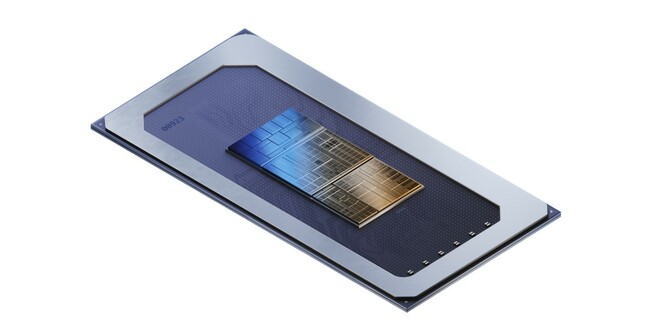Intel says AI is overwhelming CPUs, GPUs, even clouds – so all Meteor Lakes get a VPU
Movidius tech already sprinkled on some 13th-gen Core silicon goes mainstream in next generation
Computex Intel will add the VPU tech it acquired along with Movidius in 2016 to all models of its forthcoming Meteor Lake client CPUs.
Chipzilla already offers VPUs in some 13th-gen Core silicon. Ahead of the Computex conference in Taiwan, the company briefed The Register on their inclusion in Meteor Lake.
Curiously, Intel didn't elucidate the acronym, but has previously said it stands for Vision Processing Unit. Chipzilla is, however, clear about what it does and why it's needed – and it's more than vision.
Intel veep and general manager of Client AI, John Rayfield, said dedicated AI silicon is needed because nowadays AI is present in many PC workloads. Video conferences, he said, feature lots of AI enhancing video and making participants sounds great – and users just expect that PCs do brilliantly when Zooming or WebExing or Teamsing. Games use lots of AI. And GPT-like models and tools like Stable Diffusion are already popular on the PC and available as local executables.
CPUs and GPUs do the heavy lifting today, but Rayfield said they'll be overwhelmed by the demands of AI workloads.
Shifting that work to the cloud is pricey and also impractical – because buyers want PCs to perform.
Meteor Lake therefore gets VPUs, and emerges as an SoC using Intel's Foveros packaging tech to combine the CPU, GPU, and VPU.
The VPU gets to handle "sustained AI and AI offload." CPUs will still be asked to do simple inference jobs with low latency – usually when the cost of doing so is less than the overhead of working with a driver to shunt the workload elsewhere. GPUs will get to do jobs involving performance parallelism and throughput. Other AI-related work will be offloaded to VPUs.
- Intel to rebrand client chips once Meteor Lake splashes down
- Since when did my SSD need water cooling?
- Intel aims for lower-power GPUs as Nvidia pushes pricey energy guzzlers
- Cash-strapped Intel looks for $3B in savings to pursue '5 nodes in 4 years' dream
As it always does with every new generation of product, Intel says VPUs and Meteor Lake are a huge change to everything about the PC – they will make the devices even more compelling, make the world a better place, and represent a revolution. Everyone gets a puppy.
A quick reminder: PC sales are currently cratering after a pandemic-induced pop. Between last year's CPU generally being utterly adequate for this year's workload, PCs becoming more durable, businesses having just gone through twin buying cycles sparked by Windows 11 and a certain pandemic, and now a fragile economy, PC-buyers' wallets are often clamped shut.
Intel hopes AI on the desktop – either quietly embedded in applications or in dedicated apps like Stable Diffusion running locally – will mean demand for VPU-infused Meteor Lake SoCs turns things around.
Curiously, Intel announced VPUs in Meteor Lake twice in a week. First, it generalized about the presence of VPUs in the platform at Microsoft's Build conference. Then ahead of Computex it dropped news that all Meteor Lake product will include the accelerator.
Sadly Intel appears not – as we predicted – decided to use Computex to reveal the new branding it plans to deploy when Meteor Lake debuts, which will drop the "Core" brand for something else.
Intel used to make a big splash at Computex, to acknowledge Taiwan's contribution to the chip business and importance to the whole PC ecosystem. At this conference – the first full-scale physical incarnation of the event for four years – Chipzilla's hard to find. And it's relying on a partly reheated announcement.
$2.8 billion losses and massive staff layoffs will do that, we suppose. ®

